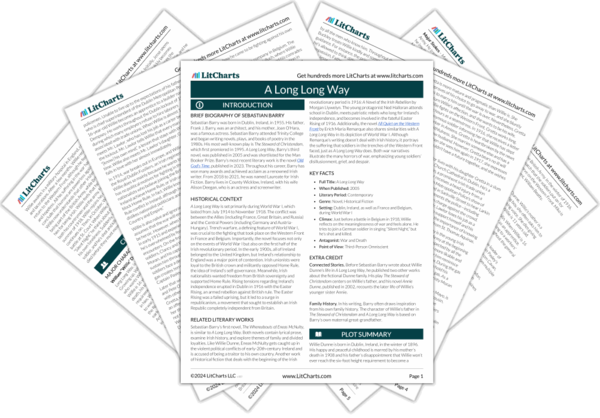Willie’s naïve reasons for going off to war demonstrate that he doesn’t know his own mind yet, despite his claims to the contrary. His motivation to fight is based on wartime propaganda, and his decision has more to do with his father’s mind than his own, since Willie desperately wants his father to be proud of him. Gretta tries to argue that “knowing one’s own mind” isn’t good justification for Willie’s decision by pointing out that, ironically, the idea isn’t even her father’s own original thought. However, Gretta’s logic doesn’t override Willie’s emotionally driven choice to join the war.
